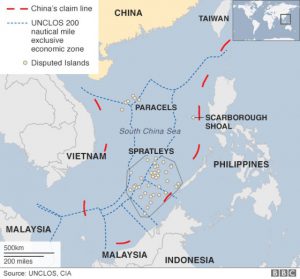As observers speak of a new Cold War between the United States and China, policymakers seem to misunderstand Sino-Russian relations in the Arctic as an alliance. This stems in part from the lack of a quantified framework to understand the ongoing shifts in the international system: the return of nationalism, fractures in the rules-based liberal order, and the rise of nontraditional security threats such as climate change. The misreading of the relationship in the Arctic also stems from a lack of subject-matter expertise among policymakers on what drives Sino-Russian ties—a shortfall that will shape future understanding of the Arctic region. […]
Russia and China’s Arctic partnership is not an alliance—it is driven by business. Despite mutually beneficial interests in the region, commercial realpolitik is at the heart of their engagement. For now, the partnership in the Arctic navigates existing fault lines, such as Beijing’s failure to acknowledge Russia’s annexation of Crimea and Moscow’s nonalignment in the developing India-China conflict. Any regional cooperation is due to their shared interest in maintaining domestic stability. Long-term economic development ventures and the viability of non-Western multilateral bodies, such as the Shanghai Cooperation Organisation, are critical for their shared vision of world order. Läs artikel

